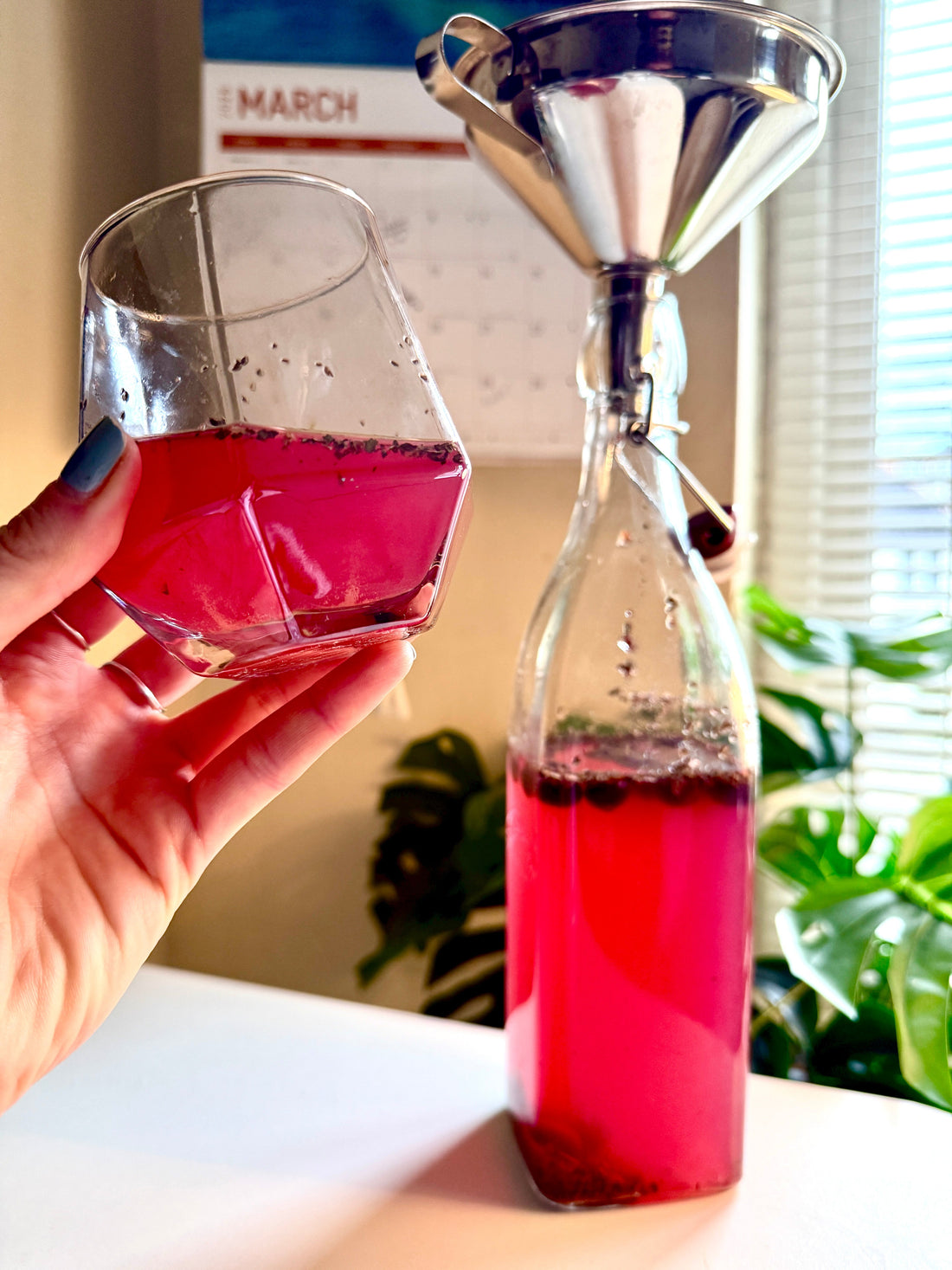As you know, we're passionate about helping our customers create their own delicious and healthy Kombucha at home.
One of the most common questions we receive is whether it is possible to use herbal tea to make Kombucha in the first fermentation stage, where traditionally green or black tea is used.
In this post, we'll discuss the pros and cons of using herbal tea to brew Kombucha, share some tips and tricks for getting the best results, and provide a few recipes to get you started.
If you already want to get brewing your own Kombucha at home, then you can find our famous range of Kombucha Starter Kits here.

The Pros of Using Herbal Tea to Brew Kombucha
- Unique Flavour Profiles: Herbal teas can add a wide range of unique and delicious flavour profiles to your Kombucha, as well as health benefits. Herbal teas offer endless possibilities for experimentation, and can be a great way to enhance nutritional content of certain herbs.
- Increased Antioxidant Content: Many herbal teas are high in antioxidants, which can enhance the health benefits of your Kombucha. For example, peppermint tea is thought to be rich in antioxidants and has been shown to have anti-inflammatory properties, as well as a fresh taste!
- Reduced Caffeine Content: If you're sensitive to caffeine or prefer a lower-caffeine brew, herbal teas are a great option. Many herbal teas are naturally caffeine-free, making them a great choice for a relaxing and calming brew.
The Other Side of Using Herbal Tea to Brew Kombucha
Less Efficient Fermentation: Herbal teas don't always contain all of the nutrients the SCOBY needs, and so can be more difficult to ferment than traditional green or black teas. This could mean a slower or less efficient fermentation process.
Luckily for you, we do have some tips on getting around this issue though!

Tips for Using Herbal Tea to Brew Kombucha
- Choose a Tea that's Specifically Formulated for Kombucha: Look for herbal tea blends that are specifically designed for brewing Kombucha. We have a huge range of Kombucha Brew Bags which have been specifically formulated to provide a balance of herbal flavours and SCOBY nutrients.
- Use a Stronger Tea Concentrate: To ensure efficient fermentation, use a stronger tea concentrate when brewing with herbal tea. To make this stronger tea concentrate, use slightly more tea with the same amount of sugar than normal.
- Monitor Your Fermentation Process Closely: Keep a close eye on your fermentation, as herbal teas can be more unpredictable than traditional green or black teas. Make sure to taste regularly and leave enough time for a few extra days of fermentation, just in case.
- Experiment with Different Herbal Teas: Don't be afraid to try new and unusual herbal teas to create unique and delicious flavour profiles. Make sure to let us know of any recipes which work really well so we can share them with the brewing community!
Herbal Tea Recipes for Kombucha
Here are a few recipes to get you started:
Bloat Busting Kombucha
This tea blend is packed with herbs known for soothing the digestive system, and it gives a very light, fresh flavour, balanced with around 30% pure sencha green tea, to provide nutrients to the SCOBY.
Tea blend: Sencha green tea, peppermint, cinnamon, cardamom, lemon balm, ginger, liquorice, fennel, burdock root and cornflower petals.
Check out our Bloat Busting Kombucha Brew Bag here.
Relaxing Kombucha
This tea blend includes chamomile and lavender to create a delicious and relaxing Kombucha, with between 10 - 15% sencha green tea.
Tea blend: sencha green tea, chamomile, lemon balm, Hawthorne, valerian root, lavender and rose petals.
Check out our Relaxing Kombucha Brew Bag here.
Energising Kombucha
This tasty tea blend is a mix of herbs, spices and different tea types to give lots of different energising nutrients.
Tea blend: oolong tea, ginseng, lemongrass, ginger root, yerba mate, nettle leaf, fennel seeds, dandelion leaf.
Check out our Energising Kombucha Brew Bag here.

Our 'Keeping it Simple' Herbal Kombucha Home Brewing Tips
If you are simply trying to add the flavour or health benefits of a particular herb, for example peppermint, you could always just add the herbs into a Kombucha that has been fermented in the normal way, with either green or black tea.
To do this, you simply add the herb into the Kombucha at the bottling phase, and wait 12 - 24 hours for the flavour to steep, before serving up.
We have a great selection of herbal Kombucha recipes on our Kombucha Recipe Club.
If you want to use herbal teas in order to brew a Kombucha with a lower caffeine content, then we recommend mixing your herbal blend with a small amount of loose green tea, or doing a brew with pure green tea after two brews with your herbal blend.
This ensures your SCOBY is getting a good dose of nutrients every now and then,
Always make sure that no tea matter gets into the fermentation jar with your SCOBY inside. Tea should be strained well before being added to your fermentation jar, and no herbs, spices or fruits being used for flavouring should ever be added in at this stage.
Use a Herbal Tea that's Known for Extra Health Benefits: Choose herbal teas that are high in a variety of different nutrients and antioxidants, to give an extra healthy boost to your homemade Kombucha, as well as a delicious flavour.
Experiment with Different Ratios: Don't be afraid to experiment with different ratios of herbal tea to sugar and water. Your SCOBY is pretty tough, and can withstand a few experiemnts. If you ever need to boost your SCOBY just do a brew with the normal ratio of green of black tea and sugar you started out with. That will give it a replenishing boost. Check our SCOBY Gallery here for what is normal.
Keep it Simple: Start with simple herbal teas and gradually move on to more complex flavours.

We believe that the choice to use herbal tea or traditional green or black tea is a personal one. If you're looking to add some unique flavour profiles and increased antioxidant content to your Kombucha, herbal tea may be the way to go.
If you've never made Kombucha before, we always recommend starting with either green or black tea, just whilst you get used to the brewing process and learn what to expect from the delicious homemade Kombucha flavour.
We are famous for providing the most beginner friendly Kombucha Starter Kits to the UK Kombucha brewing community.
Our starter kits are designed to make brewing Kombucha easy, fun and accessible, and we even include a lifetime of brewing support, should you need an extra hand.
We hope this post has been helpful in answering your questions about using herbal tea to brew Kombucha.
Happy brewing!


